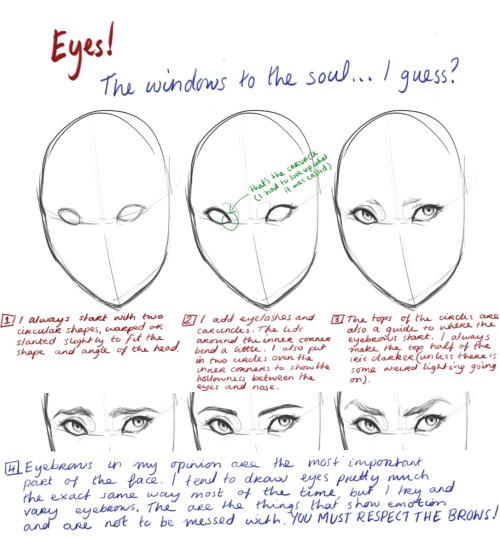1406, Christian Tagliavini
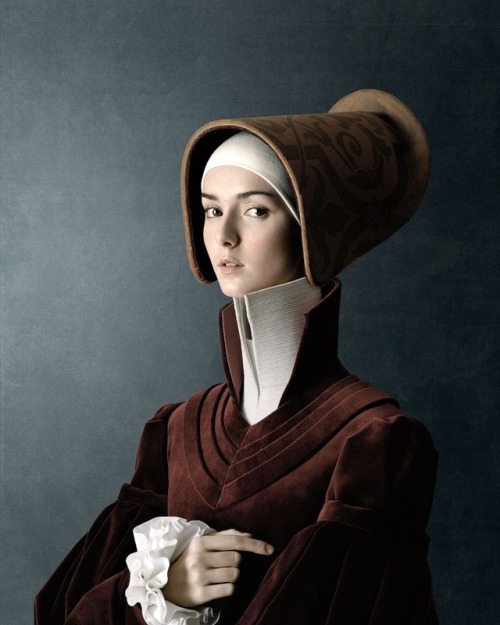

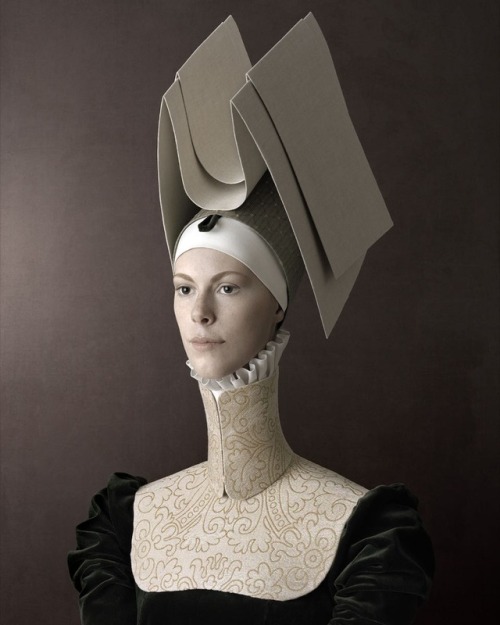
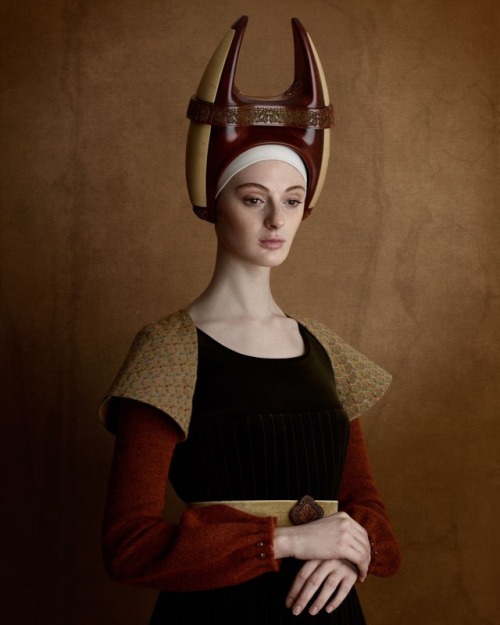
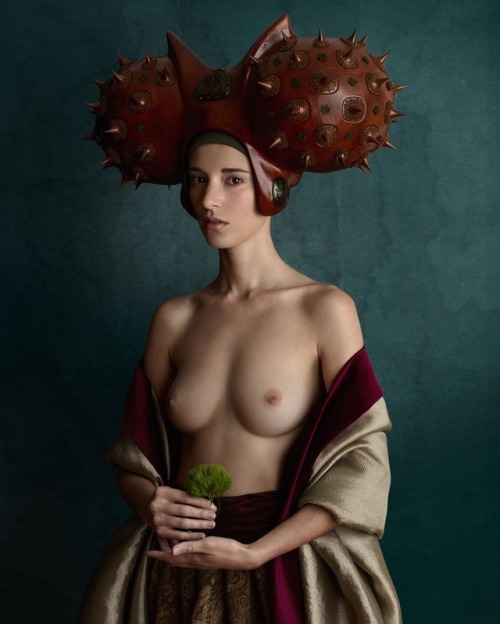
1406, Christian Tagliavini
-
 xyztmamenzarac liked this · 1 year ago
xyztmamenzarac liked this · 1 year ago -
 trebronkakalman liked this · 2 years ago
trebronkakalman liked this · 2 years ago -
 belgera reblogged this · 4 years ago
belgera reblogged this · 4 years ago -
 algood liked this · 5 years ago
algood liked this · 5 years ago -
 fbkatz reblogged this · 6 years ago
fbkatz reblogged this · 6 years ago -
 existentiallens liked this · 6 years ago
existentiallens liked this · 6 years ago -
 konomon reblogged this · 6 years ago
konomon reblogged this · 6 years ago -
 gaaplite liked this · 6 years ago
gaaplite liked this · 6 years ago -
 oddear liked this · 6 years ago
oddear liked this · 6 years ago -
 ayamebird liked this · 6 years ago
ayamebird liked this · 6 years ago -
 mr-nice999-blog liked this · 6 years ago
mr-nice999-blog liked this · 6 years ago -
 hicobeli reblogged this · 6 years ago
hicobeli reblogged this · 6 years ago -
 cream--buuuun liked this · 6 years ago
cream--buuuun liked this · 6 years ago -
 photophotota-blog liked this · 6 years ago
photophotota-blog liked this · 6 years ago -
 r1nzo reblogged this · 6 years ago
r1nzo reblogged this · 6 years ago -
 ivarskywalker reblogged this · 7 years ago
ivarskywalker reblogged this · 7 years ago -
 gemmadiluna liked this · 7 years ago
gemmadiluna liked this · 7 years ago -
 currentboat liked this · 7 years ago
currentboat liked this · 7 years ago -
 we-tranimal-things reblogged this · 7 years ago
we-tranimal-things reblogged this · 7 years ago -
 neijitu reblogged this · 7 years ago
neijitu reblogged this · 7 years ago -
 antoinedebalzac liked this · 7 years ago
antoinedebalzac liked this · 7 years ago -
 barzarc liked this · 7 years ago
barzarc liked this · 7 years ago -
 bluebeer9 liked this · 7 years ago
bluebeer9 liked this · 7 years ago -
 inkblotting reblogged this · 7 years ago
inkblotting reblogged this · 7 years ago -
 zikzik1 liked this · 7 years ago
zikzik1 liked this · 7 years ago
More Posts from Eviltown
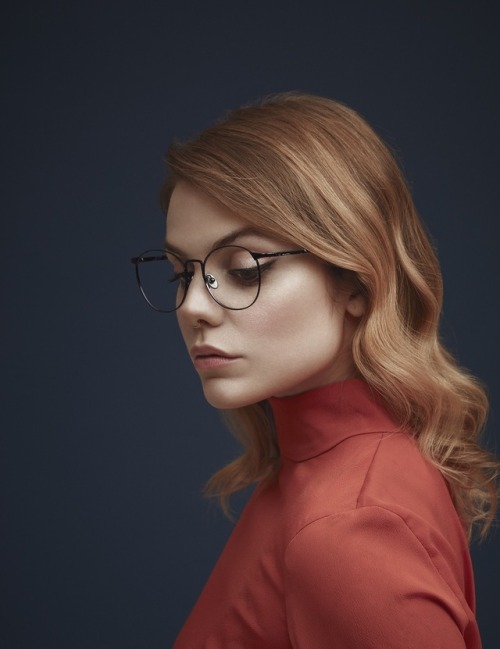
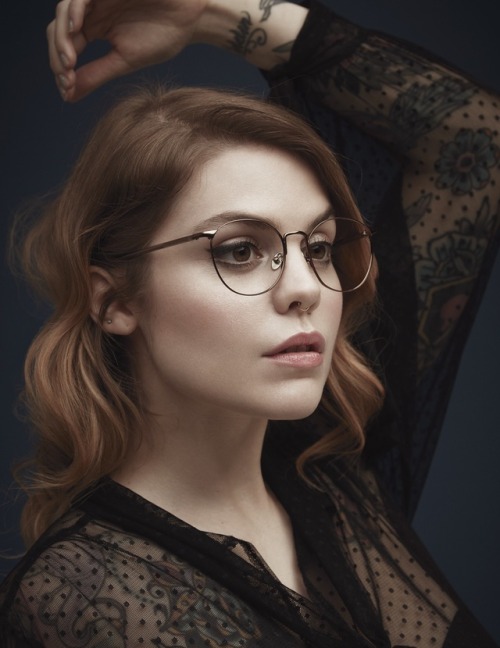
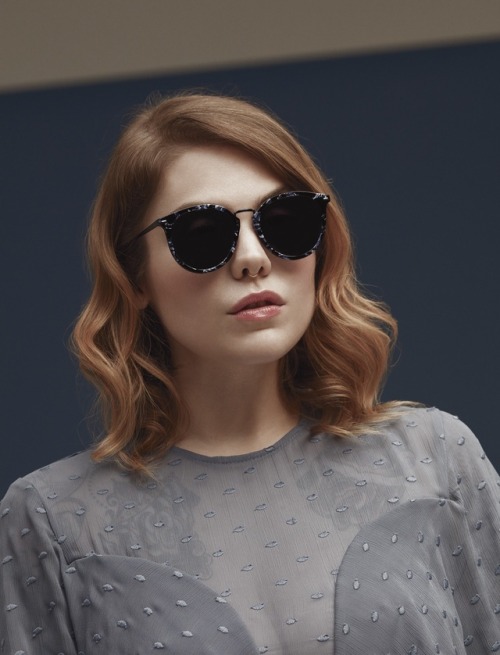
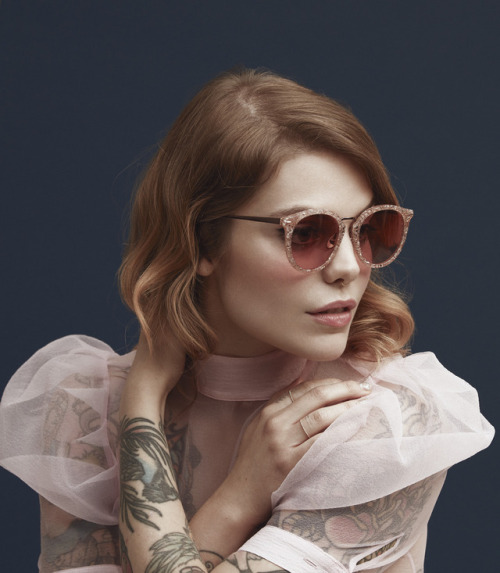
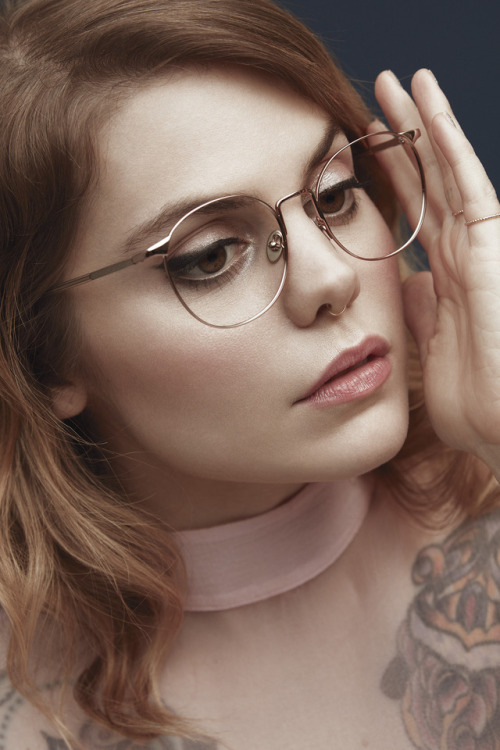

Realistic Lace Tutorial by Negshin
by any chance could you do a lil tutorial/process of how you draw limbs in different poses? esp. legs/thighs, your legs always look so jaunty and charming i love it but i never know what to, ,, ,,, do with mine, like where to put them so
Okay! I’m going to try to answer this best I can, but before I do, please remember I am just a humble animation student and by no means a professional artist or a seasoned expert, so this might not be the correct way to do things or be extremely accurate. This is just how I do it, and a couple tips I’ve picked up from teachers at school.
First of all, getting familiar with the anatomy of legs helps a lot! (I know this is the dreaded answer to every art question) I don’t know too much about the muscles of the legs other than the basics, so I don’t talk about them here because I don’t want to look like an idiot. They’re very worth studying though, especially the muscles that form the inside of the thigh and back of the calf.

Those are some leg studies I did from life in class last year, with the key parts labelled.
Chances are you’ve tried to draw legs and??

Unless you’re going for a certain style, legs that look like straight tubes or 90 degree angles are gonna look a bit weird.
As you can see with the life drawings above, legs have certain natural curves and rhythms to them! None of the bones in the legs are straight or tubular, so your legs should not be either.
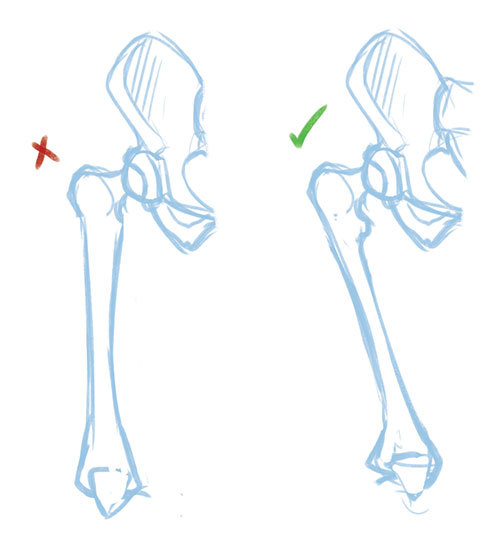
Sorry for the really mediocre pelvis it’s not my strong suit oh god. It’s easy to characterize the legs as something like this:

Remembering that the knee is a hinge joint and that it has a sort of curved offset from the upper leg to the lower leg really helps.

So when you keep that offset in mind and apply some curves over the muscle and fat layered on top of those BEAUTIFULLY RHYTHMIC bones, you get dynamic flow in your legs. The hip (trochanter), kneecap (patella) and ankle (fibula/tibia malleolus) are good landmarks to keep in mind.

So by applying some curves, you get a softer/more dynamic/rhythmic feel to the legs that makes your figure look a lot less static even if they are standing entirely still. It’s also worth noting most people shift their weight onto one hip or another, position their feet weirdly, etc etc.
Hope that helps!
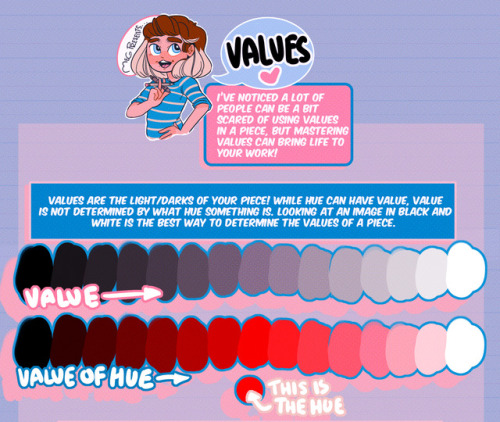
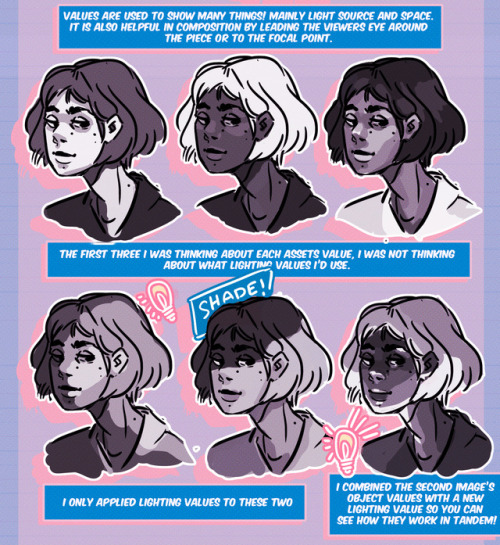
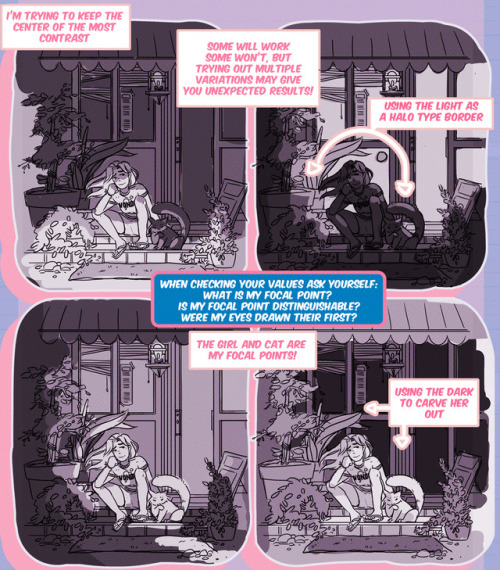
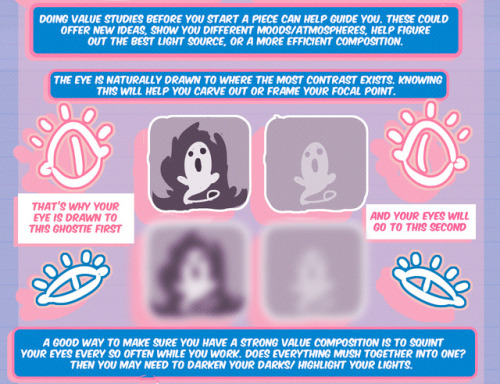
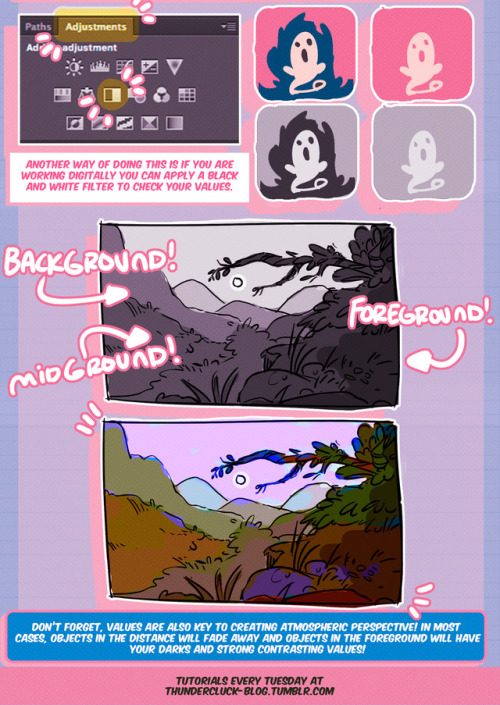
Hey friends, Meg here for WOOPS IT’S WEDNESDAY! Today we’re taking a look at how to study values and the importance of knowing how to use them! It’s not all about color, you know. If you have any tutorial recommendations send ‘em in here or my personal. Now go forth and I’ll see you next week!
